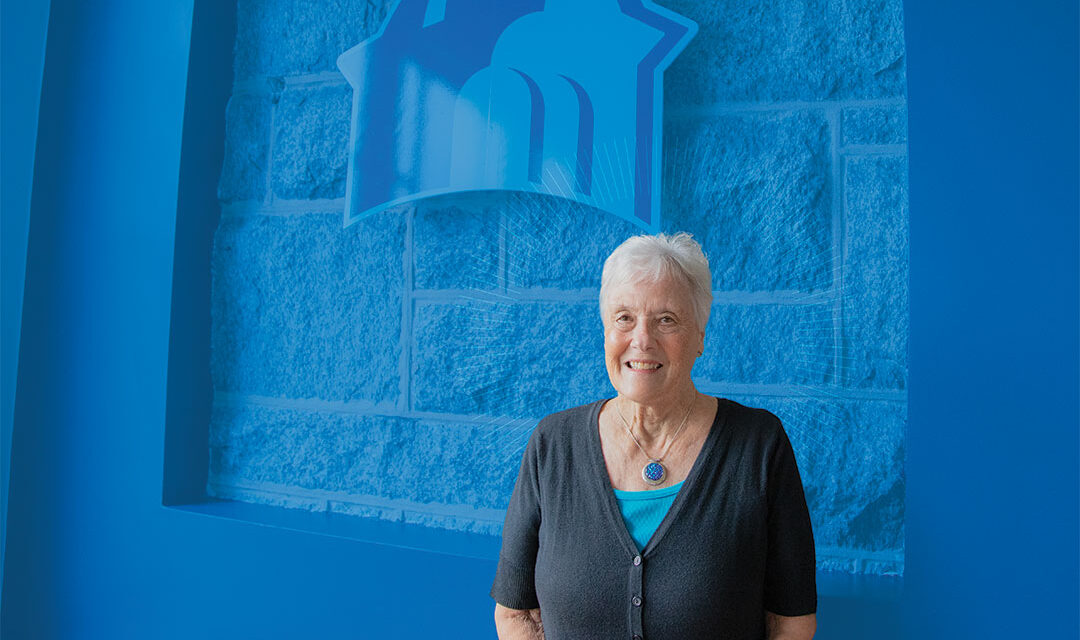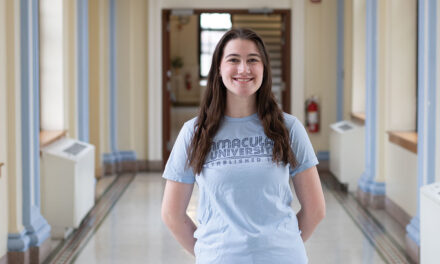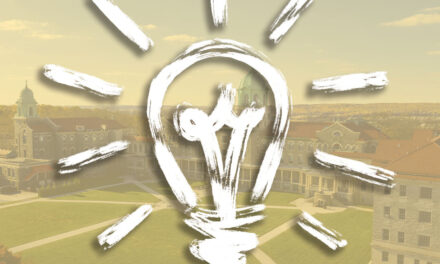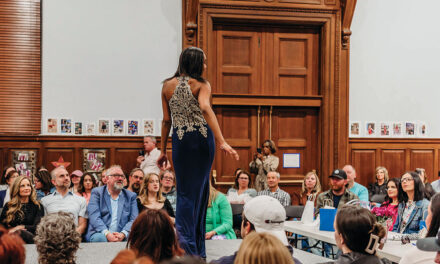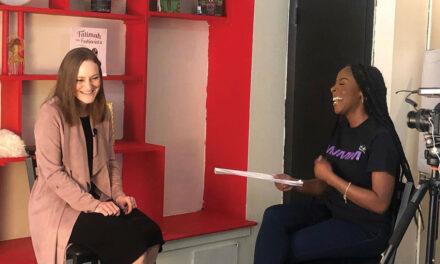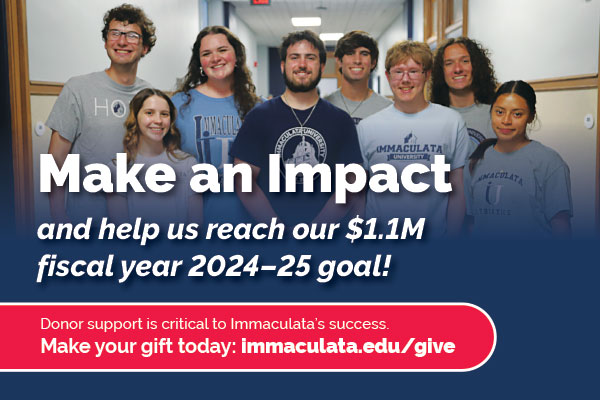When Nancy Girvin Burke ’68, ’00 Ed.D. graduated from Immaculata University as an undergraduate biology major with a minor in chemistry, she didn’t realize that her career would shift away from the lab and toward education. Trained as a biomedical technologist, she retired three years ago having taught or administered at every level from prekindergarten to college, including Immaculata and several other higher education institutions.
Studying biology/chemistry, Burke seemingly spent all her time in the science lab. After encouragement from her professor Sister Celine, Burke applied to graduate school and was accepted into and enrolled in the microbiology program at St. Joseph’s College in Connecticut. As a grad student she served as a teaching assistant to the college’s science personnel, and after accumulating credits toward a Master of Science in Biology, she returned home to central Pennsylvania to work in a lab at Holy Spirit Hospital in Camp Hill, Pennsylvania.
While at Holy Spirit Hospital, Burke met her husband, who also worked in the lab, and completed her master’s degree in biology from Shippensburg University with concentrations in microbiology and human physiology. After the couple started a family, it became difficult for them to work at the same lab with the same hours, so she decided to leave Holy Spirit after seven years and use her graduate teaching experience to teach science classes.
Burke began her professional education career at Central Penn College, teaching courses in laboratory technology, medical terminology, anatomy and physiology. She eventually moved into an administrative position at the college. After teaching at Central Penn for 16 years, Burke was contacted by the principal of Bishop McDevitt High School in Harrisburg and asked if she wanted to launch and teach a high school anatomy class. She initially turned down the offer, thinking she did not have the skills to teach high school students. The next year, they called her again.
“Just give us two years,” Burke remembered the principal telling her. “Well, two years turned into 10.”
After her career shift toward education, she felt the need to earn her doctorate and returned to Immaculata to pursue her Ed.D. in Educational Leadership. Earning her doctorate degree in 2000, Burke took a position as assistant principal/director of studies at Trinity High School in Camp Hill. After spending five years in that position, she served as principal for the next five years.
“Then I tried to retire,” she stated. Two years after retiring, Burke’s husband died. It was during this time that her parish priest at St. Catherine Laboure asked if she would fill in as principal at the elementary school until he could find a permanent replacement. Finding that she was not really ready to retire, she accepted the position.
“I went from college to high school to elementary school; I was working my way down the ladder,” she said with a laugh.
She admitted that she wasn’t used to working with younger children. “They’re huggers, but they were so adorable,” she said. She chuckled at the things that the students said to her. She remembered when one boy, who was brought to the principal’s office for a minor infraction, put his hand to his forehead and told her, “I’m dead to my friends.” After mainly teaching college and high school students, Burke enjoyed her experience with the elementary school students.
When she tried to retire again, the superintendent of Catholic schools for the Diocese of Harrisburg called, asking if she could come back to Bishop McDevitt High School for six months. She returned as administrator pro tempore. Finally, in 2020, Burke permanently retired.
However, just because she’s retired doesn’t mean that she is not busy. With her extra free time, she decided to volunteer on the Immaculata Alumni Association’s Board of Governors. This year, she helped plan the annual reunion event while celebrating her 55th class reunion. In July, she takes over as the chair of the Board of Governors. Her goals as chair include working with the campus community to engage current alumni in activities and events, recruiting younger alumni and increasing mentorship programs.
Burke is grateful for the opportunity to give back to Immaculata. Reflecting on the degrees that she earned from the University, she realizes that the faculty provided her with an education that allowed her to launch two different but very successful careers.

